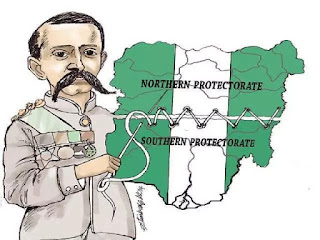THE RIGHT OF WAY
2007
Muslims rightfully boast of Islam being a religion of
peace, but that notwithstanding, are we? Throughout history from the rise of
Islam in the 7th century, Historians of various persuasions
unanimously acclaimed the founder of the religion as an epitome of all things
good. The leading Encyclopedia of our time, Britannica, authoritatively
concludes that Muhammad (PBUH) was the most successful religious personality of
all time. This certainly is no small feat considering the fact that the writers
of that article and the organization that sponsor it were Christian oriented.
Why would they do that? Simply because Muhammad was literally the “Living
Qur’an”. He lived hundred percent according to the dictates of the book.
I am going to examine two things as it relates to the
unislamic cultures we have incorporated into our psyche as part of our
religion, and not for one moment considering it wrong. Whoever travels widely
especially in Muslims land and was opportune to attend the Friday prayers,
will, if observant notice one big difference with the way we conducted our
Friday congregation. Yes the call to prayer (Adhan), the procession, the parade
and the bowing and the prostrations were universal (No doubt about that). But elsewhere
you will not see haphazard parking’s, road blockage and erratic lines. Even if
mosque were located near major roads, traffic flow unhindered. Suppose you are
travelling from Zaria through Kano to Daura and you are unfortunate to reached
Kano by 12:30pm on a Friday afternoon then you have to be ready for no less
than 4-5 road-blocks depending on your maneuverability. By 1:00pm you must stop
at Kundila Junction, then less than two kilometers away another road-block at
Zoo Road junction. If you went through Emir’s palace then at 2:15pm you have to
wait again. Further down the route to Aminu Kano way you wait for another
prayer at Isyaka Rabiu’s mosque. This might not be the end as two or three more
mosques on a major highway awaits you at Kurna, Rijiyar Lemo and Bachirawa
respectively. If at the moment you entered Kano someone is travelling at the
opposite direction towards Zaria, he had a better chance of reaching Zaria
(160km) than you crossing Kano (approx 20km).
The category of people exempted from Friday prayers
includes the traveler, the very old, children, the sick ones and women (who
were not actually exempted by religion but by culture as “Ibn 'Umar reports
that the Prophet sallallahu alehi wasallam said: "Do not prevent the women
from going to the mosques, although their houses are better for them."
Fiqh-us-sunnah Hadith Vol. 2 No 50), besides our neighbors, the Christians and
other religious affiliates. Those officially and unofficially (our women)
exempted for performing the prayers, in most cases waited inside private cars
and commuters under the scorching heat of our tropical sun unjustifiably. For
those of us who happens to visit the Holy Ka’aba can remember how the Mutawwaf
(The spiritual police) even harass those who sat along the path inside the holy
shrine. The right of path is a fundamental right in Islam as God declares in
Q20:53 “He Who has made for you the earth like a carpet spread out; has enabled
you to go about therein by roads” This culture of blocking roads every Friday
and causing inconvenience to Muslim’s and non Muslim is wrong and has nothing
to do with how Islam taught. This situation is not only peculiar to Kano but
pervasive in Northern Nigeria.
The second issue is about land encroachment, an ugly
evil that is slowly becoming the norm in our set up. People usurp neighbors and
public land without any regard for urban planning, which results into public
inconveniences and endless judicial battles. Public land is so sacrosanct that
in a Hadith reported by Abu Huraira says “The Prophet judged that seven cubits
should be left as a public way when there was a dispute about the land” Bukhari
Hadith Vol. 3 No 653. It should be noted that it was when there is dispute
between individual that they should remit back some portion for public utility.
Today you will see people usurping public land as if it is personal property.
One incidence has unsettled me for quite sometime. Along the Kano eastern bye
pass was an untarred road running parallel to the highway as the only access
road for the newly curved-out plots behind Kano state College of Education by
the state Government. To my utter dismay one morning I saw workers laying
concrete across the untarred road to the edge of the highway (cutting it in
two, blocking opposite ends, restricting access and usage) building a fuel
station. To my relief some few weeks later there was a wooden flank pinpointing
exactly the edges of the road with red lettering ordering the construction to
stop by urban planning. After several weeks again, the wooden flank was gone,
construction resumed and metal railings were put on the place were once the
wooden flank halted construction. This is typical Nigerian situation, but my
biggest surprise came when the construction was completed and there was a big
signboard reading “SANI BROTHERS”
The prophet, as narrated by Salim’s father (i.e.
Abdullah) said “"Whoever takes a piece of the land of others unjustly, he
will sink down the seven earths on the Day of Resurrection." Sahih Bukhari
Hadith Vol. 3 No 634. But should we wait for the day of resurrection?
Authorities have the responsibility of protecting public property and I would
like to appeal to the state government to do something, especially as it now
embarks on the sanitization of Kano and its environs. Besides, are we not Shari’a
compliance state?




Comments
Post a Comment